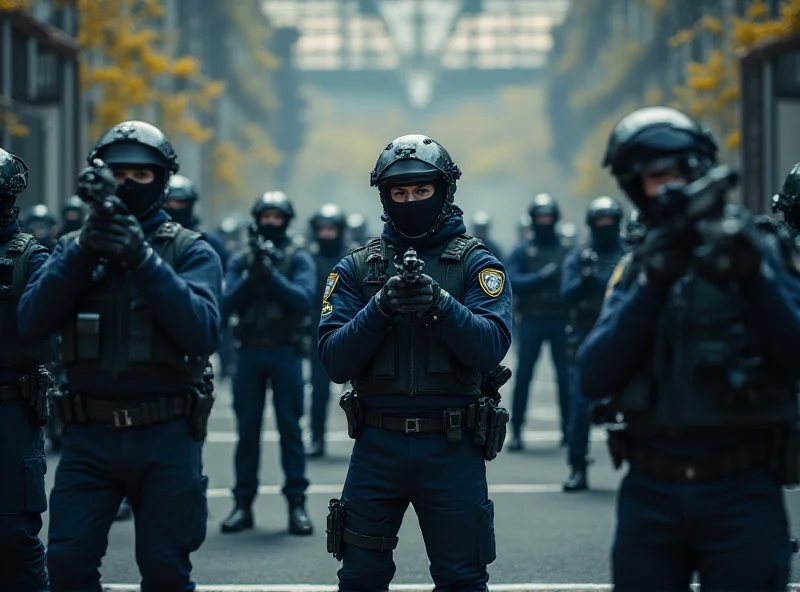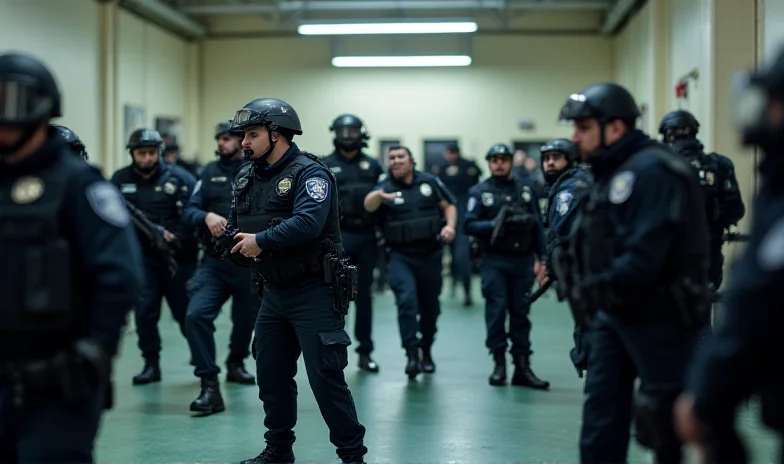This week brings a mix of legal and ethical issues to the forefront, from law enforcement accountability to evolving methods of capital punishment. Let's dive into the headlines.
Massachusetts Police Academy Faces Scrutiny
Leaders at a Massachusetts police academy have been suspended following allegations of "inappropriate conduct." While details remain scarce, authorities have made it clear that hazing, harassment, and misconduct of any kind will not be tolerated.  The announcement underscores a commitment to maintaining a professional and ethical environment within the academy.
The announcement underscores a commitment to maintaining a professional and ethical environment within the academy.
“Hazing, harassment or misconduct is unequivocally unacceptable,” stated an official release. This zero-tolerance stance reflects a broader effort to ensure accountability and integrity within law enforcement institutions.
Federal Judge Halts Medical Research Funding Cuts
In other news, a federal judge has blocked drastic funding cuts to medical research. This decision comes after separate lawsuits argued that the cuts would cause "irreparable harm" to critical research initiatives. The ruling provides a temporary reprieve, allowing researchers to continue their work without the immediate threat of reduced funding.
The specifics of the research impacted by the proposed cuts remain unclear, but the judge's decision suggests the potential consequences were deemed significant enough to warrant intervention. This situation highlights the ongoing debate surrounding government funding for scientific research and its impact on public health.
Nitrogen Executions on the Horizon?
Louisiana and Arkansas are exploring the use of nitrogen gas as an alternative method of execution. This consideration arises from a persistent shortage of lethal injection drugs, forcing states to seek alternative means of carrying out the death penalty.  Nitrogen gas, which induces hypoxia, is seen as a potential solution to resume executions.
Nitrogen gas, which induces hypoxia, is seen as a potential solution to resume executions.
The ethical and legal implications of this approach are already under intense debate, with opponents raising concerns about the humaneness and potential for suffering associated with this method. The use of nitrogen gas raises complex questions about the balance between justice and humane treatment in capital punishment.
Michelle Wu Under Legal Scrutiny
Boston Mayor Michelle Wu recently faced a challenging experience on the national stage. A highly publicized hearing, intended as Wu's debut on the national scene, quickly transformed into a legal grilling.  The hearing, which also involved three other city mayors, focused on whether they were adhering to federal immigration law. The mayors were pressed under oath to admit any non-compliance, potentially exposing Boston and Wu to legal repercussions.
The hearing, which also involved three other city mayors, focused on whether they were adhering to federal immigration law. The mayors were pressed under oath to admit any non-compliance, potentially exposing Boston and Wu to legal repercussions.
The event shifted from a showcase to a demanding legal examination, placing Wu and Boston under intense scrutiny regarding immigration policies and practices.
